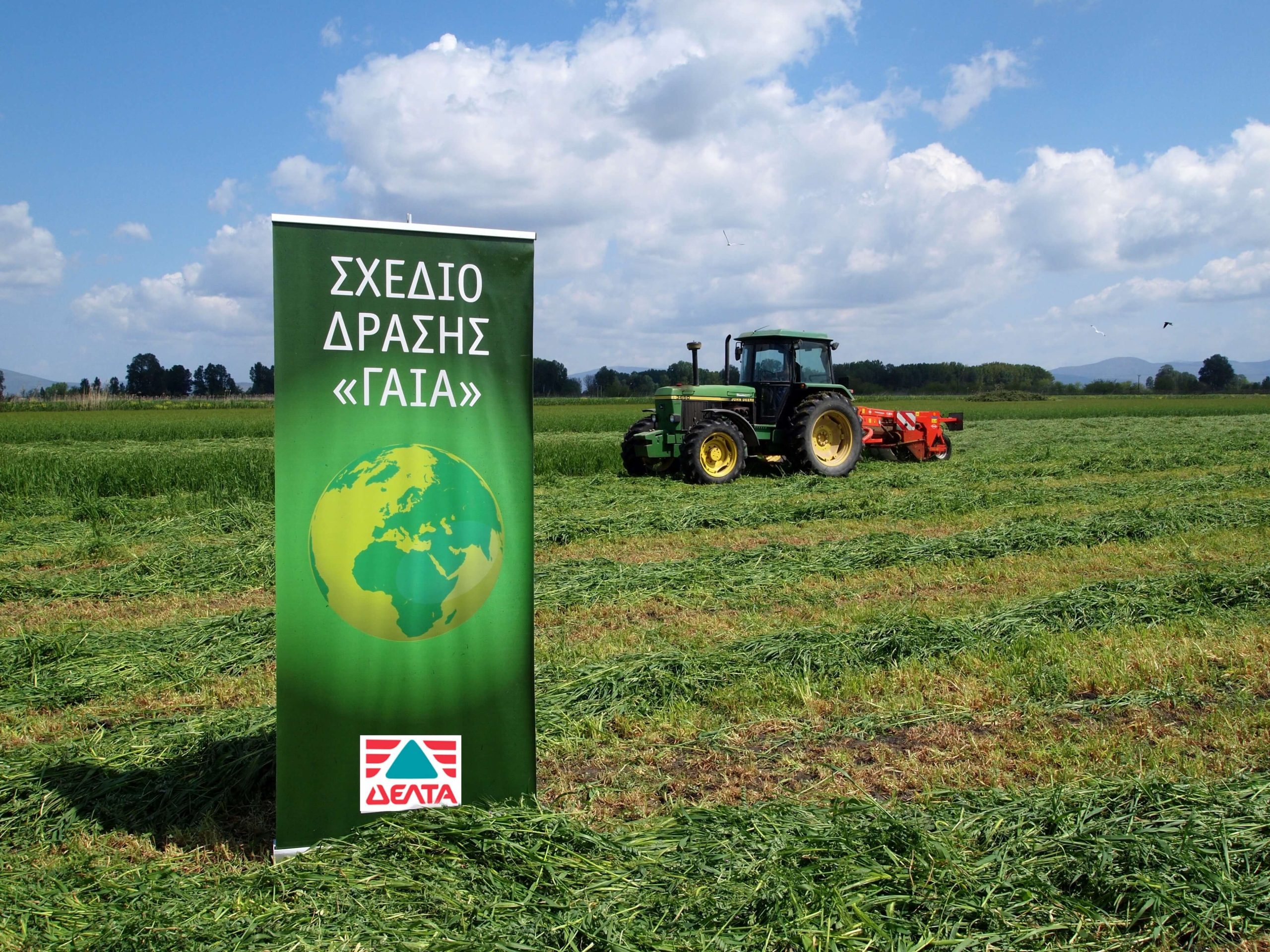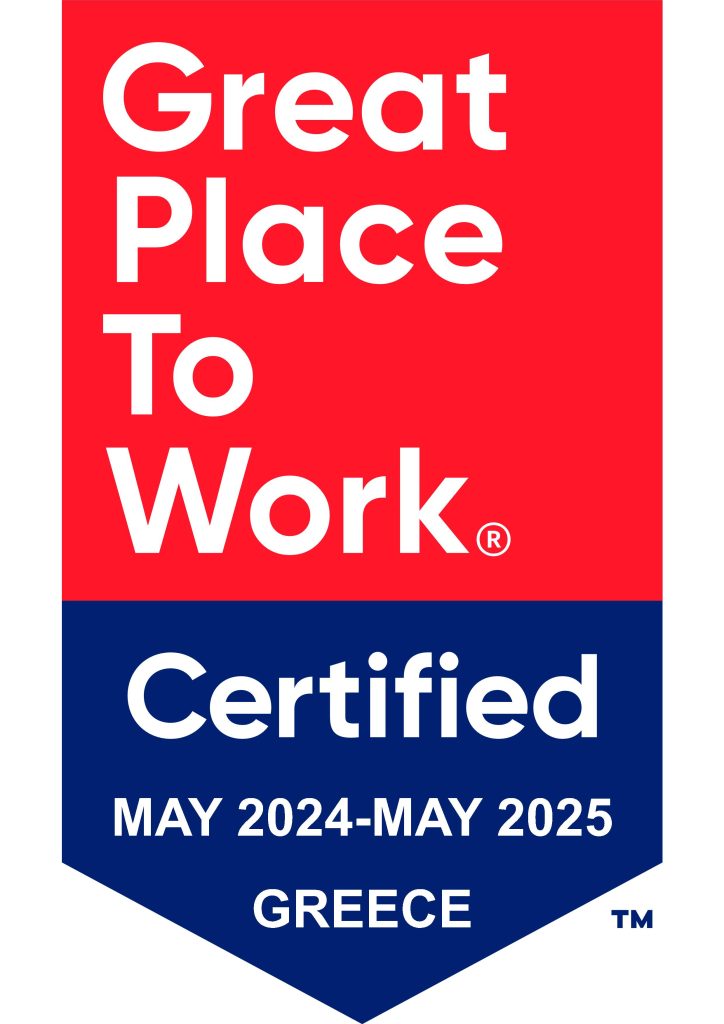Στη ΔΕΛΤΑ στηρίζουμε την Καλή Διατροφή και αναδεικνύουμε τα πολλαπλά οφέλη της!
Στη ΔΕΛΤΑ, δημιουργούμε αξία για το σύνολο του οικοσυστήματος στο οποίο δραστηριοποιούμαστε. Αγοράζοντας αγαθά και υπηρεσίες από ένα ευρύ φάσμα τοπικών προμηθευτών, ενισχύουμε την εθνική οικονομία και την απασχόληση σε κλάδους όπως η πρωτογενής παραγωγή, οι μεταφορές, η μεταποίηση και το λιανικό εμπόριο.
Στην κατεύθυνση αυτή, το 2022 το 90% του συνολικού αριθμού των προμηθευτών μας ήταν εγχώριοι και διοχετεύτηκε σε αυτούς το 85% των συνολικών δαπανών μας.
Τόσο η προσήλωσή μας στην ελληνική αγορά, όσο και το μοντέλο βιώσιμης ανάπτυξης που ακολουθούμε έχουν πολύ συγκεκριμένα αποτελέσματα στο ΑΕΠ, τα δημόσια έσοδα και την απασχόληση.
Δημιουργούμε αξία για την ελληνική κοινωνία
Η συμβολή μας στην εθνική οικονομία, την απασχόληση και τα δημόσια έσοδα, αποτυπώνεται στην ολοκληρωμένη μελέτη κοινωνικο-οικονομικών επιπτώσεων που πραγματοποιήσαμε για το 2022.
Σύμφωνα με τη μελέτη αυτή, η ΔΕΛΤΑ:
- ενίσχυσε με € 103 εκατ. το ΑΕΠ,
- ενίσχυσε με € 14,5 εκατ. τα Εθνικά Δημόσια Έσοδα,
- συνέβαλε στη δημιουργία συνολικά 3.168 θέσεων εργασίας.
Αυτό πρακτικά σημαίνει ότι για κάθε €1 προστιθέμενης αξίας της ΔΕΛΤΑ δημιουργούνται €1,42 στην ελληνική οικονομία και για κάθε 1 άμεση θέση εργασίας στη ΔΕΛΤΑ δημιουργούνται 2 θέσεις εργασίας στην ελληνική οικονομία.
Μπορείτε να διαβάσετε το σύνολο της μελέτης εδώ.


Στηρίζουμε τη βιωσιμότητα της ελληνικής κτηνοτροφίας
Οι κτηνοτρόφοι με τους οποίους συνεργαζόμαστε στην πλειονότητά τους αποτελούν οικογενειακές επιχειρήσεις με πολλά χρόνια εμπειρίας στην παραγωγή γάλακτος.
Για να συνδυάσουμε την εμπειρία αυτή με τις αρχές βιώσιμης ανάπτυξης, σχεδιάσαμε και υλοποιούμε από το 2012 το Σχέδιο Δράσης «ΓΑΙΑ» σε συνεργασία με πανεπιστημιακά και ερευνητικά ιδρύματα.
Κεντρικός στόχος του προγράμματος είναι η σύνδεση της εφαρμοσμένης έρευνας με την παραγωγική διαδικασία σε 3 επίπεδα:
1. Διατροφή των ζώων
Σε συνεργασία με το Γεωπονικό Πανεπιστήμιο Αθηνών και τον ΕΛΓΟ ΔΗΜΗΤΡΑ διερευνούμε μέσα από πιλοτικές καλλιέργειες τη δυνατότητα να παράξουμε ποιοτικές ζωοτροφές που θα υποκατάστησουν την εισαγόμενη σόγια εξασφαλίζοντας παράλληλα την ισορροπημένη διατροφή των ζώων, τη βελτίωση του βαθμού αυτάρκειας της χώρας και την αξιοποίηση της ελληνικής γης με τη μικρότερη δυνατή περιβαλλοντική επιβάρυνση.
2. Συμβουλευτική Φάρμας
Σε συνεργασία με Πανεπιστημιακά Ιδρύματα παρέχουμε ατομική συμβουλευτική σε παραγωγούς ώστε να εξασφαλίζεται η ισορροπημένη διατροφή των ζώων, να διατηρείται το υψηλό επίπεδο ποιότητας του γάλακτος και να μειώνεται το κόστος παραγωγής.
Παράλληλα, από το 2023 επεκτείνουμε αυτή τη συμβουλευτική και σε θέματα βιώσιμης ανάπτυξης, βασισμένοι σε ένα νέο πλαίσιο αξιολόγησης των κτηνοτρόφων μας που συνδυάζει κριτήρια ποιότητας και ποσότητας γάλακτος με τις αρχές της ευζωίας, της βιοασφάλειας και της μέτρησης του ανθρακικού αποτυπώματος.
3. Εκπαίδευση Κτηνοτρόφων & Υποτροφίες
Μέσα από ημερίδες και συναντήσεις που διοργανώνουμε σε όλη την Ελλάδα συμβάλλουμε στη διαρκή ενημέρωση των κτηνοτρόφων μας γύρω από νέα επιστημονικά δεδομένα και τεχνικές.
Παράλληλα, παρέχουμε υποτροφίες σε νέους κτηνοτρόφους που είναι στο ξεκίνημα της επαγγελματικής τους πορείας, ώστε να εκπαιδευτούν σε τεχνικές διαχείρισης της κτηνοτροφικής μονάδας, μέσα από εκπαιδευτικά προγράμματα της Αμερικανικής Γεωργική Σχολής Θεσσαλονίκης.
Τέλος, στηρίζουμε έμπρακτα τη συμβολαιακή κτηνοτροφία συμβάλλοντας έτσι στη διαμόρφωση ενός κοινωνικά και περιβαλλοντικά βιώσιμου μέλλοντος για τον πρωτογενή τομέα.

Στηρίζουμε τους εργαζομένους μας σε όλα τα επίπεδα
Τον Μάιο αποκτήσαμε για πρώτη φορά στην ιστορία μας την πιστοποίηση του Great Place to Work®.
Η Πιστοποίηση αυτή βασίζεται κατά κύριο λόγο, στην άμεση, ανώνυμη και εμπιστευτική αξιολόγηση την οποία πραγματοποιούν οι εργαζόμενοι της εταιρείας σχετικά με την εμπειρία τους από το εργασιακό τους περιβάλλον στις ακόλουθες παραμέτρους:
- αξιοπιστία της διοίκησης
- σεβασμός προς τους εργαζομένους
- αίσθημα δικαιοσύνης που διέπει το εργασιακό περιβάλλον
- υπερηφάνεια που νιώθουν οι εργαζόμενοι και συντροφικότητα που αναπτύσσεται στον εργασιακό χώρο.
Ενδεικτικά, σύμφωνα με τα αποτελέσματα της έρευνας:
Το 89% των εργαζομένων πιστεύει ότι το όραμα της εταιρείας για την καλή διατροφή συμβαδίζει με τις αξίες τους.
Το 84% αισθάνεται ότι η εργασία τους έχει ουσιαστικό σκοπό και δεν αποτελεί απλώς μια δουλειά ενώ το 92% δηλώνει ότι η ΔΕΛΤΑ αντιμετωπίζει όλους τους εργαζόμενους ισότιμα, ανεξάρτητα από την εθνικότητα και τη σεξουαλική τους ταυτότητα.


